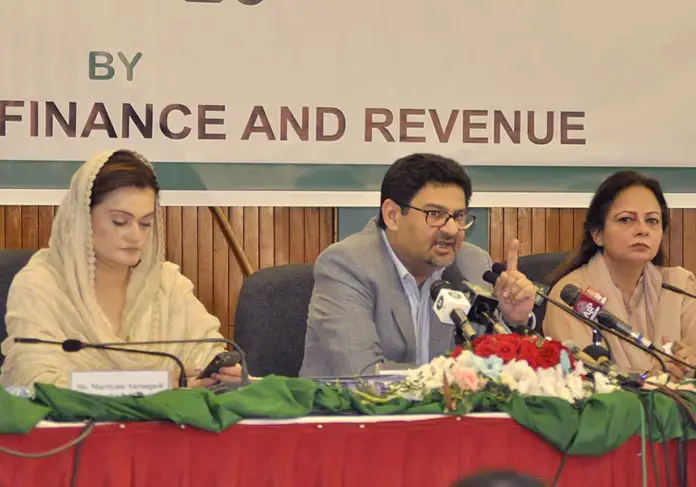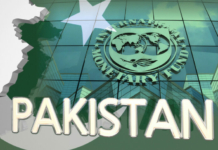Finance Minister Miftah Ismail on Saturday said that the International Monetary Fund (IMF) had expressed concerns about the country’s recently unveiled budget, but the government was confident it could make changes to satisfy the lender.
Pakistan is looking to getting a staff level agreement with the IMF this month, he said. The country unveiled a Rs9.5 trillion ($47.12 billion) budget for 2022-23 on Friday aimed at tight fiscal consolidation in a bid to convince the IMF to restart much-needed bailout payments.
“There are still some concerns the IMF has about our budget and numbers and stuff like that,” Miftah said in an interview at his office in Islamabad.
He said the IMF was concerned about fuel subsidies, a widening current account deficit, and the need to raise more direct taxes. Fuel subsides have been cut in the last two weeks, and the remaining support is expected to be removed in coming days.
Proposed budget estimates also seek to rein in the current account deficit, but direct tax revenues remain a concern and Miftah said “slight differences” remain there. The IMF’s resident representative in Islamabad did not immediately respond to a request for comment.
Miftah said Pakistan would seek to allay the concerns before the budget has to be passed by parliament. Pakistan’s financial year runs from July 1 to June 30. “If there are some changes that we need to make to bring them onboard, we shall do so,” he said.
Pakistan is halfway through a $6 billion, 39-month IMF programme which has stalled over the lender’s concerns over the status of some of its objectives, including fiscal consolidation.
Pakistan urgently needs funds in the face of dwindling foreign exchange reserves, which have reached $9.2 billion – enough for less than 45 days of imports.
Meanwhile, Miftah said worsening government administration in the past had caused huge damage to the national economy and drifted it to the verge of collapse that compelled the coalition government to present a tough budget.
Addressing the post-budget press conference, he said if that maladministration were not addressed timely, it would cause further devastation and that was why the incumbent government had to present such a budget to address those issues. The minister was flanked by Minister for Information and Broadcasting Marriyum Aurangzeb, Minister of State for Finance and Revenue Aisha Ghaus Pasha and Finance Ministry officials.
Miftah said there was a need to correct the country administratively; otherwise its economy would not be run. “We have to go to other countries for loans, packages and deposits. Pakistan is a proud country, a country of proud people, a nuclear power country, and we will have to fix our economy,” he said. “We should not incur such expenditures that we cannot afford.”
The minister said the budget was presented at a difficult time when the country was passing through very hard times.
“At least for the last 30 years… I have never seen such difficult times where on one side Pakistan is faced with internationally challenging environment and on the other, the government administration has worsened,” the minister remarked. Unfortunately, nothing was done by the previous regime to correct the economy, he added.
Citing huge losses in the power and gas sectors, the minister said during the past year, around Rs3,400 billion losses were recorded in the two sectors owing to subsidies and defaults.
The minister said subsidies of more than Rs1,100 billion were given in the power sector, whereas the circular debt reached Rs500 billion, taking the total losses of the sector to Rs1,600 billion.
The country had no capacity to bear those huge losses, which, if not addressed, would damage the economy, he added.
Likewise, the minister said, Rs400 billion subsidy was given in the gas sector coupled with Rs1,400 billion circular debt, whereas the Sui Northern Gas Pipelines Limited (SNGPL) faced the loss of Rs200 billion. Gas valuing $2.4 billion was lost annually at the network of the SNGPL, which had never been accounted for. However, he assured that the government would provide gas to the industry on rates that were competitive in the regional market.
The minister said the previous government had caused huge damages to the economy, however, Prime Minister Shehbaz Sharif took difficult decisions and would continue to take more, if required, to put the country back on track.







